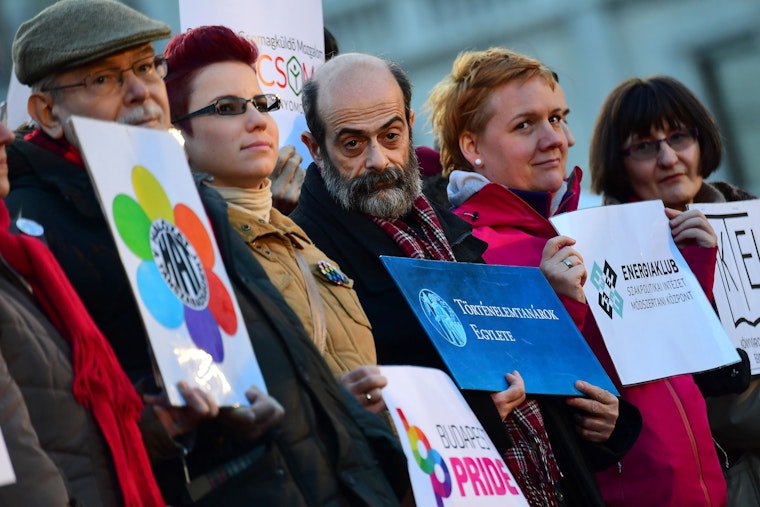European Union Court Rejects Hungarian NGO Funding Law
By Natacha Kazatchkine & Kersty McCourt

It’s now almost exactly three years since Hungary adopted a law (the Transparency law) blatantly attacking the existence of independent civil society groups, as it escalated public attacks on the European Union, human rights NGOs, and the founder of the Open Society Foundations, George Soros.
Today, the Court of Justice of the European Union has ruled the Hungarian legislation unlawful, affirming for the first time that the right to freedom of association is protected by EU law.
This ruling resonates across the European Union, and beyond, at a time when too many governments have created legal constraints on NGOs, that ultimately seek to silence them or to close them down. It is as a call for action by EU institutions to ensure that civil society groups can get access to funding, regardless of the country from which they come. And a call to allow people, regardless of where they live, to participate in, and effectively contribute to, European democratic life.
Echoing the joint call from NGOs and donors, Civil Society in the Frontline: Five Points for EU Action, the judgment opens the way for greater use of EU resources to defend and promote civic space highlighting three themes.
Firstly, the judgment clearly affirms the role of civil society—specifically stating that the right to freedom of association “constitutes one of the essential bases of a democratic and pluralist society.” It builds on important case law from the European Court of Human Rights and demonstrates that rights are integral to the functioning of the European Union.
When civil society is under attack around the world, to a level where democratic freedoms have diminished for a 14th year in a row, according to an annual assessment by Freedom House, the court’s decision sends a very clear and timely signal.
Secondly, the court elaborates on the application of EU law. Through the lens of EU freedoms, in this case free movement of capital, the court sets out, for the first time, key features of the right to freedom of association. By doing so, the judgment provides insights that will be crucial for the future development of EU law and action to defend civil society.
The court set out a substantive element of freedom of association—the right to access funding echoing the principles elaborated by the first UN Special Rapporteur on the Rights to Freedom of Peaceful Assembly and Association, Maina Kiai, in his 2012 report:
The ability for associations to access funding and resources is an integral and vital part of the right to freedom of association […] Any associations, both registered or unregistered, should have the right to seek and secure funding and resources from domestic, foreign, and international entities.
The court developed this further to specifically address the right of donors to support associations and thereby contribute to civic affairs. The judges note that the measures laid out in the Hungarian law have a dissuasive effect on the participation of donors resident in other countries. This in turn hinders the activities and operations of civil society organizations as well as the achievement of their objectives.
Lastly, the court warned that the discrimination on foreign funding grounds set out in the law gives way to ideological profiling of associations and donors alike, stating that the law is founded on a presumption—made on principle and indiscriminately—that any financial support of civil organizations that is sent from abroad is intrinsically suspect.
It is very significant that the judgment recognizes the chilling effect of such laws that bolster intimidation campaigns and foster a climate of distrust in the work of associations.
The ruling opens the way for a more systemic use of infringement proceedings to enforce fundamental rights [PDF] and for specific monitoring of the interface between EU law and the protection of civic space. It points to further action by the European Commission, and specifically the vice president in charge of EU values, who is newly mandated [PDF] to uphold the right to freedom of association. In the coming months, the EU will adopt its first annual Rule of Law report and a new strategy on implementation of the Charter of Fundamental Rights. These are key opportunities to set out priorities for action to defend freedom of association in Europe and ensure that violations by EU member states are rapidly addressed.
At the same time as the EU is set to adopt a budget for the next seven years, EU institutions need to revisit the figures and increase contributions to the work of civil society in promoting EU values of democracy and pluralism. It is now up to the Hungarian government to repeal the law and the EU institutions to ensure the voice of the court is heard.

Natacha Kazatchkine is head of the EU internal policy team for the Open Society Europe and Eurasia Program.
Kersty McCourt is senior advocacy advisor with the Open Society Justice Initiative.

